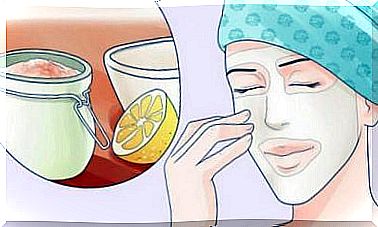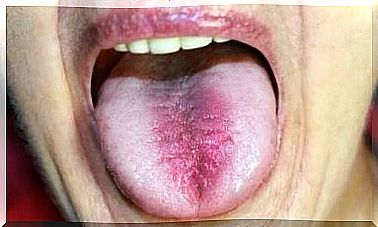Toxic Families: Characteristics

Toxic families are like small islands full of conflicts, commands and dysfunctional dynamics that affect all members.
We also know that the adjective “toxic” is very fashionable. All of you have surely heard or used expressions such as “my relationship is toxic” or “I have a toxic colleague”.
It is important to emphasize that this label does not correspond to any clinical description and that there is no psychology textbook that defines it as a pathology or a disorder.
However, its colloquial use groups together a set of processes that are perfectly identified with the word “toxicity”.
The reason is simple. There are people who, due to their personality, character or way of communicating, hurt, threaten the balance and deprive of motivation and self-esteem.
Similarly, a phenomenon that is not talked about much is that which refers to the house, those walls in which families relate and bind to love each other, protect themselves, educate their children and build a future projected towards happiness.
However, this dynamic does not always follow a perfect rule. The family, in fact, is a hermetic institution in which events that are not always positive happen.
It is important to deepen the topic by talking about toxic families and their dynamics.
Types of toxic families
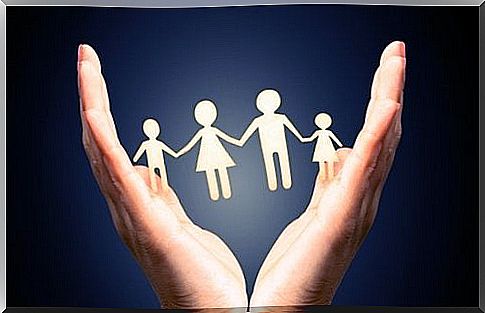
Psychologists and experts in family dynamics remind us that, rather than focusing on toxic families, we should speak of “toxic parents”.
Both the father and the mother flaunt this position of power in the family, a place where the claims will affect, in one way or another, the rest of the members, whether they are children or even dependent relatives, such as grandparents.
The fire of toxicity is not reduced to a single member.
Let us now analyze what are the different types of toxic families.
Manipulative, narcissistic and poorly tolerant families
In some families the problem is concentrated in a member with a narcissistic and manipulative profile.
- It is quite common for such a personality to create situations where control is exercised, freedom, respect and even tolerance are limited.
- Living like this comes at a very high price. Children will never feel cared for and respected, with the risk of developing low self-esteem or rebellious behavior towards this toxic and negative figure.
Immature parents and children who care for their parents
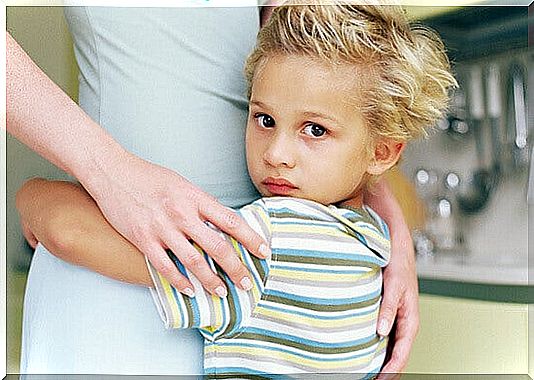
- The low sense of responsibility, disinterest, neglect or poor control of their impulses make these subjects disreputable people.
- In these cases, children usually take on the responsibilities of an adult prematurely, which is unjust and unhealthy.
Children need their own time and they don’t have to grow up too fast.
Parents who project their frustrations onto others
There is no worse psychological weapon than frustration. A frustrated mother or father reflects their faults, fears and failures on their children or partner, creating a very exhausting situation.
All these dynamics leave deep marks on children who are forced to fulfill their parents’ dreams or to be the relief valve of their dissatisfaction.
Parents who use their children to attack their spouse
Sometimes a parent can “exploit” the children to attack the partner.
This situation often occurs during a divorce or when trying to get the attention of a child to make him choose one side or the other.
They are destructive dynamics for the infantile mind which is dominated by blackmail.
Causes of toxic families
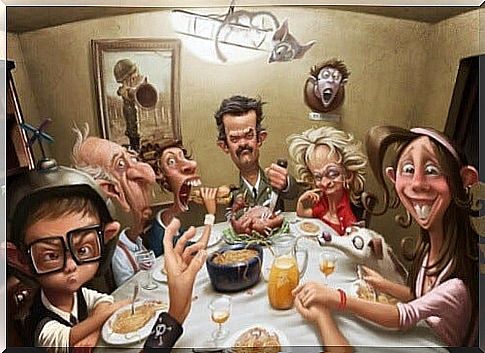
Knowing the origin of the problem in a toxic or dysfunctional family is the first step to be able to encourage change or create strategies that bring harmony and good coexistence dynamics.
It must be said that it is not always easy. The emotional toll is usually very high.
Furthermore, changes do not occur overnight if, for example, we are not used to speaking in a determined way with ourselves and with others. If this does not happen, all efforts to foster a better coexistence, respect and happiness of parents and children will be in vain.
Let’s now look at the processes behind toxic families:
- Possible psychological disorder, disorder or addiction problem of some family member.
- Abuse of power and an authoritarian style.
- Absent parents, who escape their responsibilities.
- Lack of love.
- Possible physical or psychological abuse and mistreatment.
- Poor communication style due to lack of personal ability or lack of interest.
- Lack of consistency or low reliability on the part of one of the parents.
- Low self-esteem of the father or mother.
- A high level of need and need on the part of one of the parents for which both the partner and the children must be up to meeting his expectations.
In conclusion, perhaps some of you identify with much of the data provided. If so, always as much as possible, try to do your part to create a more peaceful environment and better relationships.
If you are aware of the high negative impact of this relationship on you, you should make other decisions to safeguard your emotional balance and your dignity.





